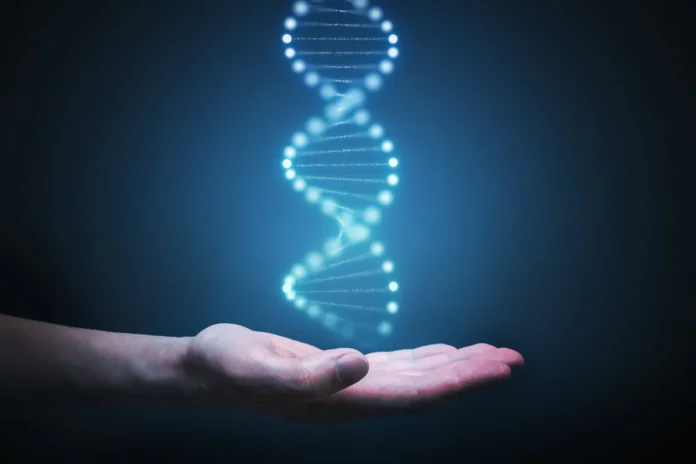
Luck is a concept that is often used to describe unexpected or favorable events that happen to individuals or groups without apparent explanation. It is often attributed to chance or random occurrences beyond one’s control. However, luck is a multifaceted concept that can be difficult to define precisely.
Luck plays a significant role in human life, shaping our experiences, opportunities, and outcomes. It can determine success or failure in various aspects of life, such as career, relationships, health, and personal fulfillment. Luck can also impact our mental and emotional wellbeing, affecting our perception of life and sense of happiness.
Despite its elusive nature, luck can be explained through scientific concepts, such as psychology, biology, sociology, and physics. These concepts provide insights into the factors that influence luck, including mindset, genetics, social networks, culture, and quantum mechanics. By understanding the scientific underpinnings of luck, individuals can enhance their ability to attract and harness luck, leading to greater success and happiness in life.
The Psychology of Luck

The mindset and perception of individuals can significantly influence their luck. Individuals with a positive attitude and optimistic mindset are more likely to experience positive events and outcomes. They tend to focus on opportunities rather than obstacles and are more resilient in the face of challenges. On the other hand, individuals with a negative mindset may miss opportunities, ignore positive events, and perceive the world as a hostile place. Therefore, mindset and perception play a crucial role in determining the level of luck an individual experiences.
Positive psychology emphasizes the role of positive emotions, thoughts, and behaviors in promoting well-being and happiness. Studies have shown that individuals who practice positive psychology techniques, such as gratitude, mindfulness, and optimism, tend to experience greater levels of luck. These practices help individuals develop a more positive mindset, improve their mood, and increase their resilience, which can attract positive events and outcomes.
Expectations can also impact an individual’s luck. If an individual expects to experience positive events and outcomes, they are more likely to attract them. This phenomenon is known as the “self-fulfilling prophecy.” On the other hand, if an individual expects negative events or outcomes, they may unconsciously sabotage their efforts or miss opportunities that could have led to positive outcomes. Therefore, managing expectations is crucial in enhancing one’s luck. Individuals should set realistic but positive expectations and be open to unexpected opportunities that may arise.
In conclusion, the psychology of luck highlights the importance of mindset, positive psychology techniques, and managing expectations in enhancing luck. By developing a positive attitude, practicing positive psychology techniques, and setting realistic but positive expectations, individuals can increase their chances of experiencing luck in their lives.
The Biology of Luck

Studies have shown that genetic factors can influence an individual’s luck. Certain genes have been associated with personality traits such as optimism, resilience, and openness to experience, which are factors that can enhance an individual’s luck. Additionally, genes that regulate neurotransmitters such as dopamine and serotonin, which are associated with pleasure and positive mood, have also been linked to luck. However, genetics is only one aspect of luck, and environmental factors such as upbringing and life experiences can also influence an individual’s luck.
Neurobiology studies have shown that luck can be linked to the structure and function of the brain. Research has suggested that the anterior cingulate cortex, a brain region involved in emotional regulation and decision-making, may play a role in luck. Individuals with a well-developed anterior cingulate cortex tend to be more optimistic, resilient, and better able to manage stress, which can enhance their luck.
As the statistics have shown, stress can also impact an individual’s luck. Chronic stress can impair cognitive function, reduce emotional regulation, and increase negative emotions, which can decrease an individual’s chances of experiencing luck. On the other hand, individuals who can manage stress effectively tend to be more resilient and optimistic, which can enhance their luck.
In conclusion, the biology of luck highlights the role of genetics and neurobiology in influencing an individual’s luck. While genetics can play a role in determining an individual’s personality traits and predisposition to positive emotions, environmental factors and life experiences also influence luck. The impact of stress on luck underscores the importance of managing stress effectively to enhance one’s luck.
The Sociology of Luck

Social networks can play a significant role in an individual’s luck. Research suggests that individuals with strong social connections are more likely to experience positive events and outcomes, such as finding a job, receiving help during difficult times, or meeting new people who can offer opportunities. Additionally, social networks can provide emotional support, which can increase resilience and enhance an individual’s ability to manage stress, ultimately increasing their chances of experiencing luck.
Cultural factors can also influence an individual’s luck. In some cultures, luck is believed to be a result of divine intervention or cosmic forces. In other cultures, luck is associated with hard work and determination. The cultural values and beliefs of society can shape individuals’ attitudes toward luck, which in turn can influence their experiences with luck. For example, in some cultures, playing games such as these at casinos may be seen as an entertaining activity, while in other cultures, it may be considered immoral or unethical.
Privilege can also play a role in an individual’s luck. Privileged individuals may have access to better education, job opportunities, social networks, and resources, which can increase their chances of experiencing positive events and outcomes. On the other hand, individuals who face systemic barriers such as discrimination, poverty, or lack of access to resources may have fewer opportunities to experience luck. However, it’s important to note that privilege doesn’t guarantee luck, and individuals from all backgrounds can experience luck through their mindset, social networks, and other factors.
In conclusion, the sociology of luck highlights the role of social networks, cultural factors, and privilege in influencing an individual’s luck. While social networks can provide opportunities and emotional support, cultural values and beliefs can shape attitudes towards luck, and privilege can provide access to resources and opportunities. Understanding these factors can help individuals enhance their chances of experiencing luck and improve their overall well-being.
The Physics of Luck

Quantum mechanics is a branch of physics that studies the behavior of matter and energy at the atomic and subatomic level. According to quantum mechanics, particles can exist in multiple states simultaneously until they are observed or measured, at which point they “collapse” into a single state. This principle has been applied to the concept of luck, with some scientists suggesting that luck is not entirely random, but is influenced by an individual’s observation or interaction with the environment.
Chaos theory is the study of nonlinear systems that are highly sensitive to initial conditions, meaning that small changes in the starting conditions can lead to significant differences in the final outcomes. Chaos theory has been applied to the concept of luck, with some scientists suggesting that small changes in an individual’s behavior or environment can lead to significant differences in their luck.
As they say, multiverse theory is a hypothetical concept in physics that suggests that there may be multiple universes, each with its own set of physical laws and properties. Some scientists have suggested that luck may be influenced by the existence of parallel universes, with individuals experiencing different levels of luck in each universe.
While the physics of luck is still a topic of debate among scientists, these theories offer interesting perspectives on the nature of luck and its potential relationship with the fundamental principles of the universe.
In conclusion, the physics of luck offers a unique perspective on the nature of luck, with quantum mechanics, chaos theory, and multiverse theory offering potential explanations for how luck operates in the universe. While these theories are still being explored and debated, they offer exciting possibilities for understanding and enhancing an individual’s luck.
The Practical Applications of Luck

One of the practical applications of luck is the concept of the “luck mindset.” Individuals with a luck mindset tend to believe that luck is not entirely random and that they have some control over their luck. They are also more likely to notice and capitalize on opportunities when they arise. Research suggests that individuals with a luck mindset are more likely to experience success and achieve their goals.
There are several techniques that individuals can use to improve their luck. These include cultivating a positive attitude, being open to new experiences, taking calculated risks, developing a strong social network, and practicing gratitude. Additionally, some individuals may use “spin to win games” or other forms of gambling as a way to potentially enhance their luck, although it’s important to approach these activities with caution and within responsible limits.
While luck can play a significant role in an individual’s success and well-being, it’s important to acknowledge that luck is not the only factor at play. Individuals also have a responsibility to work hard, make ethical choices, and contribute to their communities. It’s also important to consider the impact of privilege and systemic factors on an individual’s luck, and work towards creating a more equitable society where everyone has the opportunity to experience luck.
In conclusion, the practical applications of luck highlight the importance of developing a luck mindset, using techniques to enhance luck, and balancing the role of luck with personal responsibility and ethical considerations. By understanding the factors that influence luck and taking proactive steps to cultivate positive experiences, individuals can enhance their overall well-being and increase their chances of success.
Finally
In conclusion, luck is a complex phenomenon that plays a significant role in human life. While luck has traditionally been viewed as entirely random and unpredictable, recent scientific research suggests that luck can be explained through various concepts such as psychology, biology, sociology, physics, and practical techniques for enhancing luck.
The psychology of luck emphasizes the role of mindset and perception, while the biology of luck focuses on genetics and neurobiology. The sociology of luck emphasizes the impact of social networks, cultural factors, and privilege. The physics of luck explores the potential influence of quantum mechanics, chaos theory, and multiverse theory on luck.
Furthermore, the practical applications of luck highlight the importance of cultivating a luck mindset, using techniques to enhance luck, and balancing the role of luck with personal responsibility and ethical considerations. By understanding the factors that influence luck and taking proactive steps to cultivate positive experiences, individuals can enhance their overall well-being and increase their chances of success.






